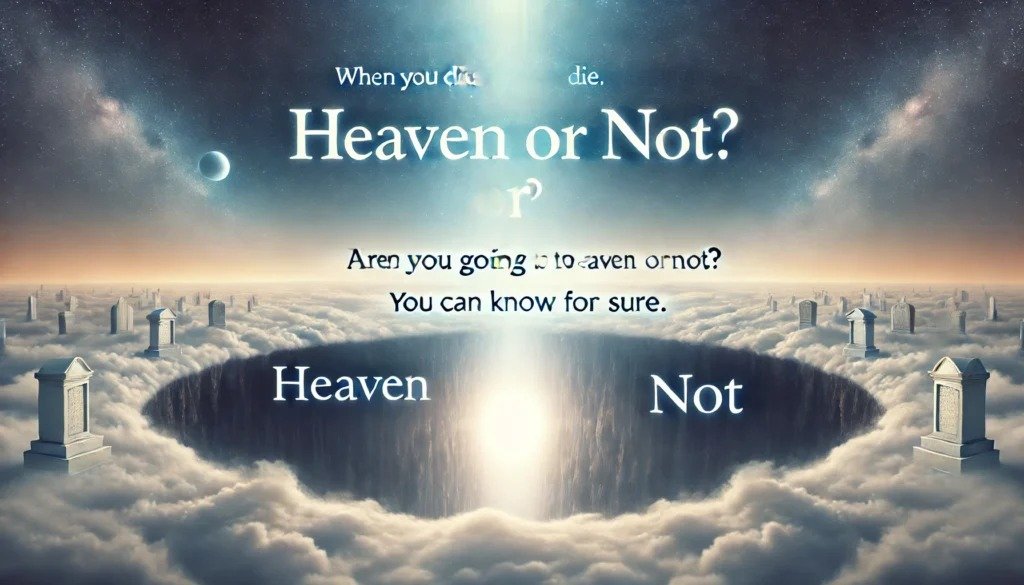Introduction to Heaven or Not.net
The question of what happens after we die is one of humanity’s oldest and most profound inquiries. The website heaven or not.net aims to provide a platform for exploring various beliefs, theories, and philosophies regarding the afterlife. With so many different perspectives on heaven, hell, and everything in between, it can be challenging to navigate this complex subject. In this article, we will delve into the core concepts presented on heaven or not.net, examining various religious, philosophical, and personal viewpoints about the afterlife.
Understanding the Concept of Heaven
The Definition of Heaven
Heaven is often depicted as a place of eternal happiness and peace, where souls reside in the presence of the divine. According to various religious texts and beliefs, heaven is characterized by:
- Perpetual Joy: An existence free from suffering.
- Divine Presence: The feeling of being close to God or a higher power.
- Community: Reunion with loved ones who have passed away.
The site heaven or not.net encourages users to reflect on their personal definitions of heaven, inviting them to consider what makes a paradise for them.
Theological Perspectives on Heaven
Different religions offer unique interpretations of heaven. Here are a few key perspectives:
Christianity
In Christianity, heaven is often seen as a reward for believers. Key points include:
- Salvation through Faith: Christians believe that faith in Jesus Christ is essential for entering heaven.
- Descriptions in the Bible: Passages like Revelation 21 describe heaven as a place with streets of gold and no pain or suffering.
Islam
Islamic teachings depict heaven (Jannah) as a garden of bliss. Notable aspects include:
- Levels of Heaven: Different levels of paradise exist, based on a person’s deeds on Earth.
- The Importance of Faith and Good Deeds: Like Christianity, belief in God and a life of righteousness are crucial for entry into Jannah.
Hinduism and Buddhism
Hindu and Buddhist beliefs diverge from the traditional binary of heaven and hell. Here, concepts like reincarnation play a significant role:
- Moksha in Hinduism: Liberation from the cycle of birth and rebirth is the ultimate goal.
- Nirvana in Buddhism: A state of liberation and freedom from suffering.
By examining these perspectives on heaven or not.net, users can engage with a wide array of afterlife beliefs.
The Philosophical Debate: Heaven or Not?
The Existential Question of Afterlife
Philosophically, the existence of heaven raises profound questions. Some prominent thinkers have challenged traditional notions of an afterlife:
- Existentialists: They argue that life’s meaning is derived from our existence, rather than an afterlife.
- Materialists: They hold that consciousness ceases to exist after death, making the concept of heaven irrelevant.
On heaven or not.net, users can explore these philosophical debates and consider how they align or contrast with their own beliefs.
Arguments For and Against the Existence of Heaven
Arguments For Heaven
- Personal Experiences: Many claim to have had experiences that suggest the existence of an afterlife.
- Religious Texts: Sacred texts provide descriptions and promises of heaven.
- Psychological Comfort: The belief in heaven can provide solace and hope.
Arguments Against Heaven
- Lack of Empirical Evidence: Skeptics argue that there’s no scientific proof of heaven.
- Cultural Relativity: Heaven’s definition varies significantly across cultures, suggesting it may be a social construct.
- Naturalistic Explanations: Some argue that near-death experiences can be explained by physiological reactions.
The discussions on heaven or not.net invite users to weigh these arguments and form their own conclusions.
The Role of Personal Beliefs
How Beliefs Shape Our Understanding of Heaven
Personal beliefs heavily influence how individuals perceive the afterlife. Factors include:
- Cultural Background: A person’s upbringing plays a significant role in shaping their beliefs about heaven.
- Life Experiences: Personal tragedies or joyous events can sway one’s belief in heaven or the lack thereof.
- Community Influence: Social circles and community narratives can reinforce or challenge personal beliefs.
On heaven or not.net, visitors are encouraged to reflect on how their backgrounds inform their views on the afterlife.
The Impact of Doubt and Skepticism
Doubt can also play a critical role in shaping beliefs about heaven. Questions such as “Is heaven real?” or “Do I believe in an afterlife?” are central to many individuals’ journeys. Engaging with the content on heaven or not.net can help people navigate these doubts and seek clarity.
Exploring Alternative Views
Secular Perspectives on the Afterlife
Not everyone believes in a traditional concept of heaven. Secular perspectives often focus on:
- Legacy: How one’s actions live on in the memories of others.
- Humanism: Finding meaning and purpose within this life, rather than in an afterlife.
heaven or not.net provides a platform for users to explore these secular views, fostering discussions on meaning without a divine framework.
The New Age Movement
The New Age movement offers another take on heaven, often blending elements from various spiritual traditions. Key concepts include:
- Spiritual Evolution: The idea that individuals can ascend to higher states of consciousness.
- Multiple Dimensions: Beliefs in various planes of existence beyond physical life.
On heaven or not.net, users can discover how these ideas challenge traditional views of heaven and the afterlife.
Practical Implications of Beliefs about Heaven
How Beliefs Affect Behavior
Beliefs about heaven can significantly influence moral and ethical behavior. For instance:
- Motivation for Good Deeds: The hope of reaching heaven can inspire individuals to live virtuous lives.
- Coping Mechanisms: Believing in an afterlife can help individuals cope with loss and grief.
heaven or not.net explores these implications, examining how beliefs shape daily actions and life choices.
The Impact on Mental Health
Belief in heaven can have various effects on mental health, such as:
- Hope and Resilience: A belief in an afterlife can foster a sense of hope, helping people endure hardships.
- Fear of Judgment: Conversely, fear of not attaining heaven can lead to anxiety and stress.
Visitors to heaven or not.net can learn about the psychological impacts of these beliefs and how to navigate them.
Conclusion: Heaven or Not?
As we’ve explored, the question of heaven—or the lack thereof—is complex and multifaceted. From religious teachings to philosophical debates and personal beliefs, the landscape of thought surrounding the afterlife is rich and varied. heaven or not.net serves as a valuable resource for those seeking to understand this topic better, offering insights into different perspectives and encouraging personal reflection.
Ultimately, the question remains: is there a heaven, or is it merely a construct of human desire for continuity beyond death? Engaging with the discussions on heaven or not.net can be an enlightening journey toward finding answers—or perhaps, embracing the mystery.




